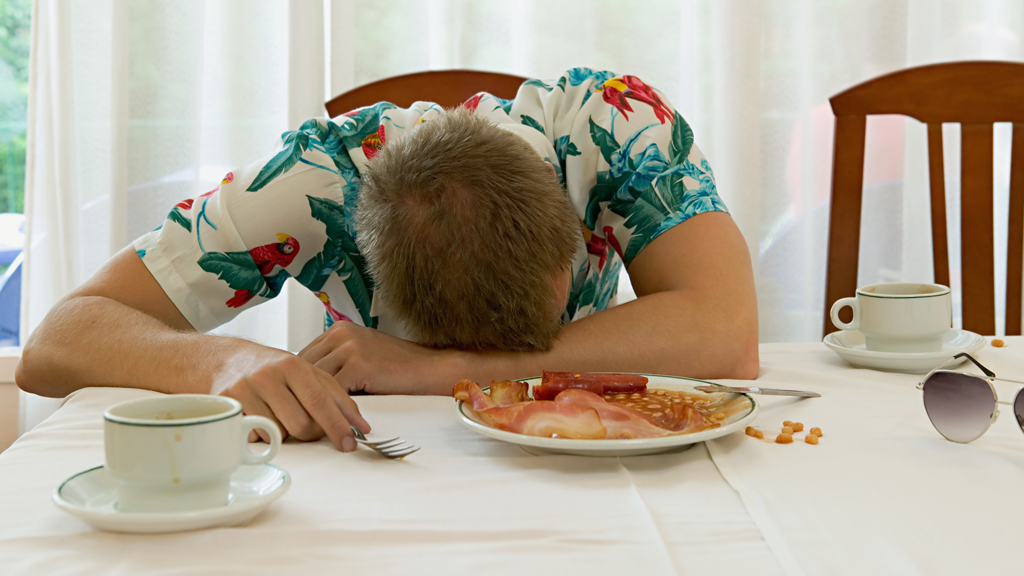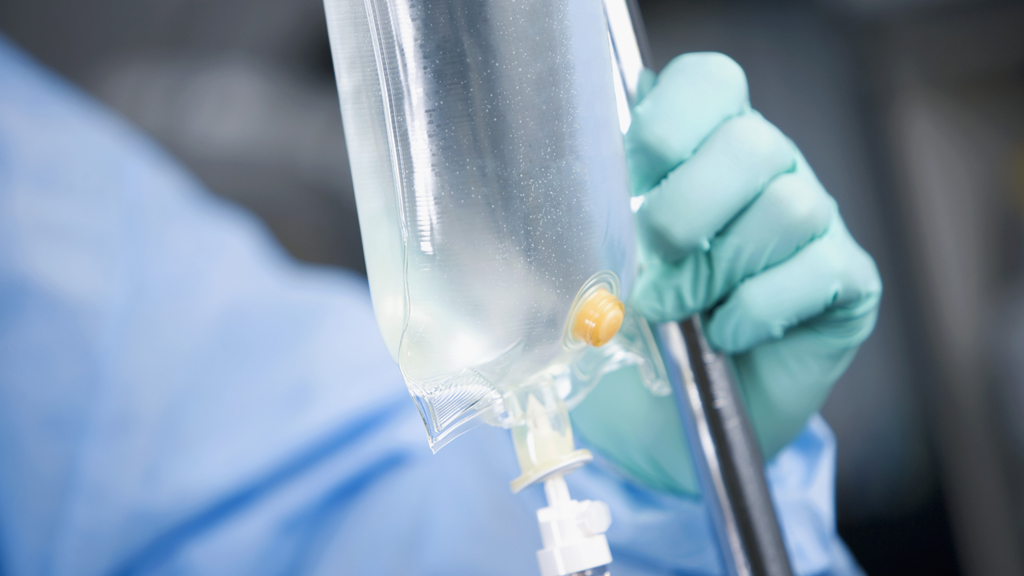Patches, drips and droppings: the search for a hangover cure
As the party season looms, Channel 4 News looks at the latest developments in the hunt for a hangover cure – from vitamin patches and intravenous drips to rabbit dropping tea.

The latest product attempting to cash in on our collective failure to know our limits is the Bytox “hangover prevention patch”, on sale in the UK for the first time this week.
Essentially a multivitamin formula in patch form, Bytox claims to reduce and prevent hangovers by replenishing nutrients that are supposedly lost thanks to the diuretic effects of alcohol.
Patchy science
Scientists have queued up to pour scorn on the evidence for these claims, with Dr David Nutt, the former chief government adviser on drugs, saying: “It’s hard to imagine how those ingredients would stop a hangover. And I have never seen any published material on this at all.”
This scepticism is understandable, given that we still don’t fully understand why too much alcohol causes you to feel so rotten the morning after.
Dehydration, the presence of byproducts of the fermentation process called congeners and a reaction by the immune system have all been fingered as the culprits.
But Joris Verster, assistant professor of psychopharmacology at the University of Utrecht and one of the world’s leading experts on hangovers, says the mechanism that causes them remains “puzzling” and adds that “most remedies do not significantly reduce overall hangover severity”.
His research does suggest that anti-inflammatory drugs might help, suggesting that aspirin and ibuprofen may be the heavy drinker’s painkiller of choice – although they can cause irritation of the stomach, which may be in a delicate state already.
The science may be wobbly, but that hasn’t stopped the relentless marketing of hangover cures, the most eye-catching of which involves hooking patients up to hospital-style drips in order to quickly rehydrate them with saline solution and other ingredients.

Saline solution?
America is leading the way here, with former anaestheticist Dr Jason Burke offering to “cure your hangover in one hour or less” with an intravenous drip if you wake up in the US party capital Las Vegas nursing a pounding headache.
Dr Burke’s aggressively-marketed Hangover Heaven bus may not have arrived in the UK yet, but the idea has already taken root here, partly thanks to immigration from eastern Europe.
The medical drip as a hangover cure has been around for decades in former Eastern Bloc countries, many of which still top the World Health Organisation league tables for the nations that drink the most alcohol.
Lukas Gudauskas, a Lithuanian doctor now working as a GP in the UK, explained: “It goes back to the days of the Soviet Union.
“In those times people were drinking a lot, and if you needed to go to work or you had an important meeting after two days of drinking, it was one solution to get yourself in better condition.
“It’s very simple. When you have a hangover, you are dehydrated and anxious. If you go on a drip you feel better straight away. The drip itself is not harmful for your health.”
While the technique might be relatively safe, doctors warn that such “cures” can provide an excuse for hard drinkers to carry on with a damaging lifestyle.
Dr Gudauskas, himself a teetotaller, warns that repeated bad hangovers, as well as other symptoms like memory loss, can be a serious sign of problem drinking.
Nevertheless, what started as a clandestine black market service for wealthy drinkers in the days of the Warsaw Pact is becoming a booming business in the UK.
Eastern promises
Entrepreneurs from eastern Europe were the first to offer an express hangover treatment service aimed principally at fellow migrant workers.
Advertisements on Lithuanian-language websites offer “emergency” visits from trained medical staff to sore-headed revellers in Northen Ireland and London.
In one case reported by a Lithuanian newspaper, £150 bought a visit from a Ukrainian doctor brandishing a saline drip, an injection of glucose and a tranquiliser.
Within three hours the drip works its magic and “you will be able to go to work like nothing happened”, according to the medics offering the service.
Health clubs and beauty clinics are getting in on the act too, although they generally don’t explicitly market the drip as a hangover cure.
A “Drip & Chill” treatment at London chain EF Medispa promising an intravenous boost for anyone feeling “a bit low” will set you back £225.
But with the hangover experts still not convinced that dehydration is the real cause of a hangover – or that high-dose vitamins are the answer – we don’t know if the latest treatments will work any better than old favourites like fried breakfasts, copious amounts of coffee or cold showers.
Other more outlandish suggestions from around the world include tucking into cows’s stomach, in the form of tripe soup (Mexico and Turkey), rubbing lemons under the armpits before going out (Puerto Rico) and sipping tea made from rabbit droppings (the Wild West).
Help us find the world’s favourite #hangovercure on twitter.com @Channel4News